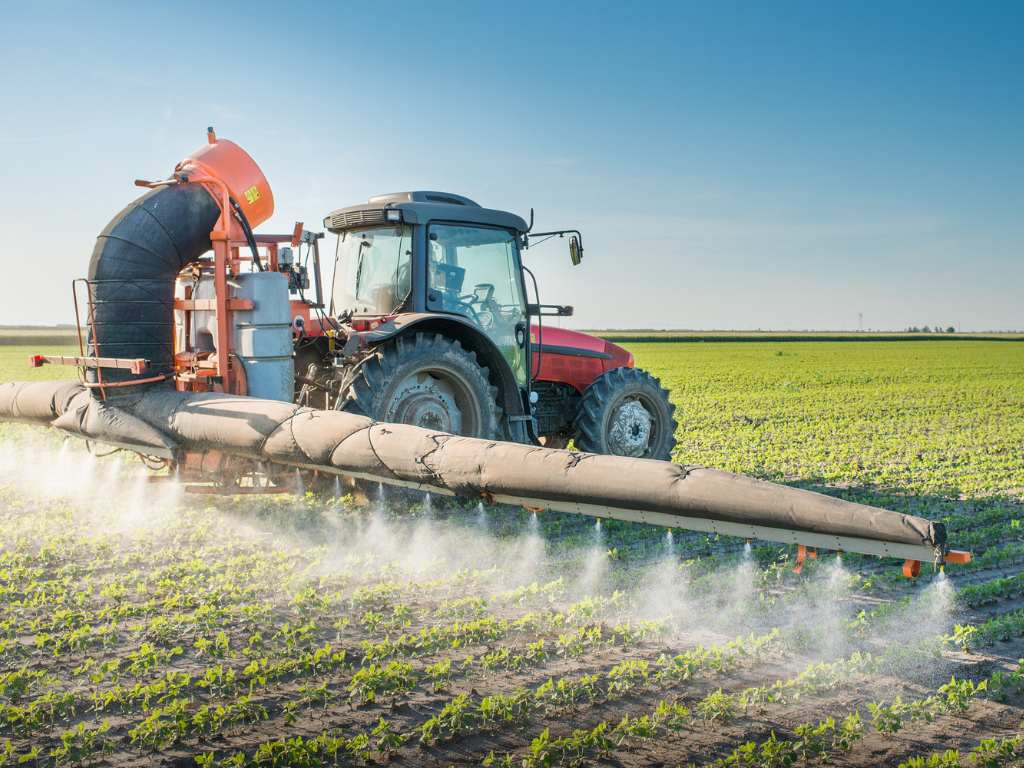Advantages and Disadvantages Of Using Pesticides for Pest Control

Share Article
Striking a Balance Of Pesticide Use
Commercial Pesticides Uses
In the commercial world pesticides are applied across a wide range of different settings, with each bringing its own demands and objectives. Agricultural fields are probably the most recognisable industry for pesticide application, where they are used to ensure crop vitality and improved yields. Although their use goes far beyond just farming. Pesticides are also used to maintain other public spaces such as golf courses and public parks, where aesthetics and health of vegetation are key, and even used in commercial warehousing. Here is a breakdown of the commercial settings where they are utilised:
- Agricultural Fields: Enhancing crop protection against a wide range of pests to secure food supply.
- Public Parks and Golf Courses: Ensuring the health and aesthetics of green spaces for recreational use.
- Commercial Warehouses and Storage Facilities: Protection of stored goods from pest damages, ensuring economic stability.
- Urban Landscaping: Preservation of healthy urban greenery, contributing to the ecological balance and aesthetic value of city areas.
- Public Health Initiatives: Control of vector populations to mitigate the spread of diseases in populated areas.
Domestic Pesticides Uses
Pesticides are commonly used in residential and domestic settings too. They are primarily targeted at protecting homes from various pests which can cause damage to a property. Homeowners often resort to these pesticides to ensure they are living free from pests such as ants, cockroaches, mice, rats, and bed bugs. These chemicals usually come in the form of sprays, baits, and powders, which are designed to be user-friendly for effective DIY pest control. They are often used in the prevention of potential diseases that these pests carry, improving the well-being of residents. Although they sound great in concept, incorrect use can in fact make a pest infestation worse, or unknowingly make the living area toxic. It may well be worth speaking with a professional pest control technician to advise or assist should you have an infestation of pests. In residential settings, pesticides are commonly used for:
- Ant and Cockroach Baits: To control infestations of ants and cockroaches, which are common household pests.
- Garden and Lawn Care: Managing pests that affect lawns, gardens, and other outdoor spaces.
- Rodent Control: Eradicating mice and rats to prevent disease and food contamination.
- Mosquito Repellent: Reducing the presence of mosquitoes around homes to prevent mosquito-borne diseases.
Pros and Cons of the Use of Pesticides
Pros
- Enhanced Food Production: Pesticides play a crucial role in maximising food production by effectively controlling pests that can significantly reduce crop yields. This contributes to global food security and supports agricultural economies.
- Disease Control: By controlling pests such as mosquitoes and rats, pesticides can assist in reducing the spread of diseases, some of which can be fatal or cause significant health issues.
- Economic Benefits: The prevention of crop losses and damage to properties from pests translates to considerable economic benefits for farmers, homeowners, and the broader economy.
- Conservation of Green Spaces: In urban and recreational settings, pesticides help maintain healthy and aesthetically pleasing green spaces, contributing to the quality of life and the environment.
Cons
- Environmental Impact: The use of pesticides can lead to pollution of land and water, harming wildlife and disrupting ecosystems. Residual chemicals can affect non-target species, leading to biodiversity loss.
- Human Health Risks: Direct or indirect exposure to pesticides can pose health risks to humans, ranging from acute poisoning to long-term effects such as cancer and neurological disorders.
- Pesticide Resistance: Pests can develop resistance to pesticides over time, necessitating the use of stronger chemicals or more frequent applications, which also increases negative environmental and health impacts.
- Economic Costs: For farmers, the cost of pesticides and the potential need for more potent variants due to resistance can be financially burdensome. Reliance on chemical solutions can reduce investments in sustainable pest management practices.
Future Considerations
The role of pesticides in our modern world is complex, intersecting with environmental, health, and economic dimensions. While they offer significant benefits, their drawbacks call for a more integrated approach to pest management. Sustainable practices, alongside judicious pesticide use, may provide a balanced future, which aims for minimal environmental impact while protecting human health and ensuring economic viability.
